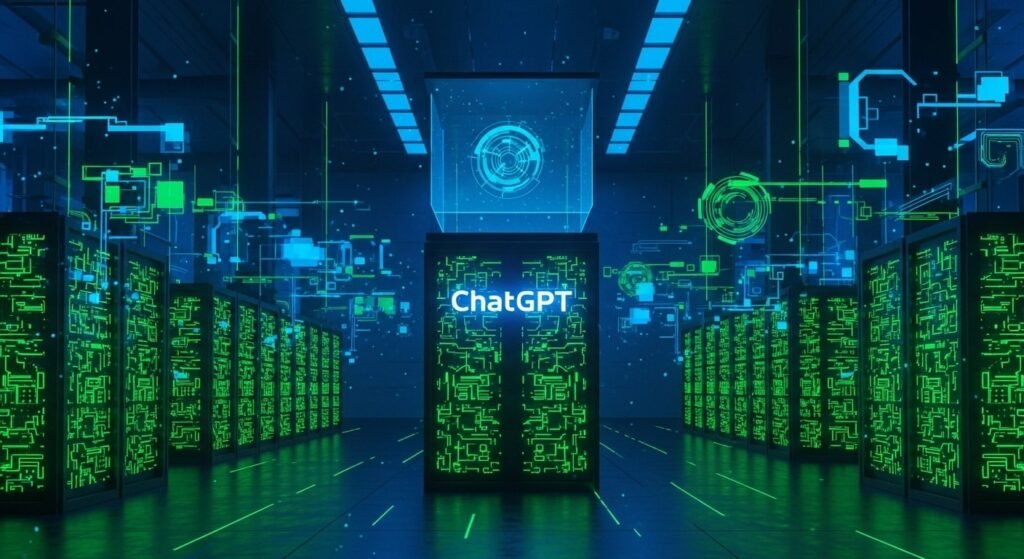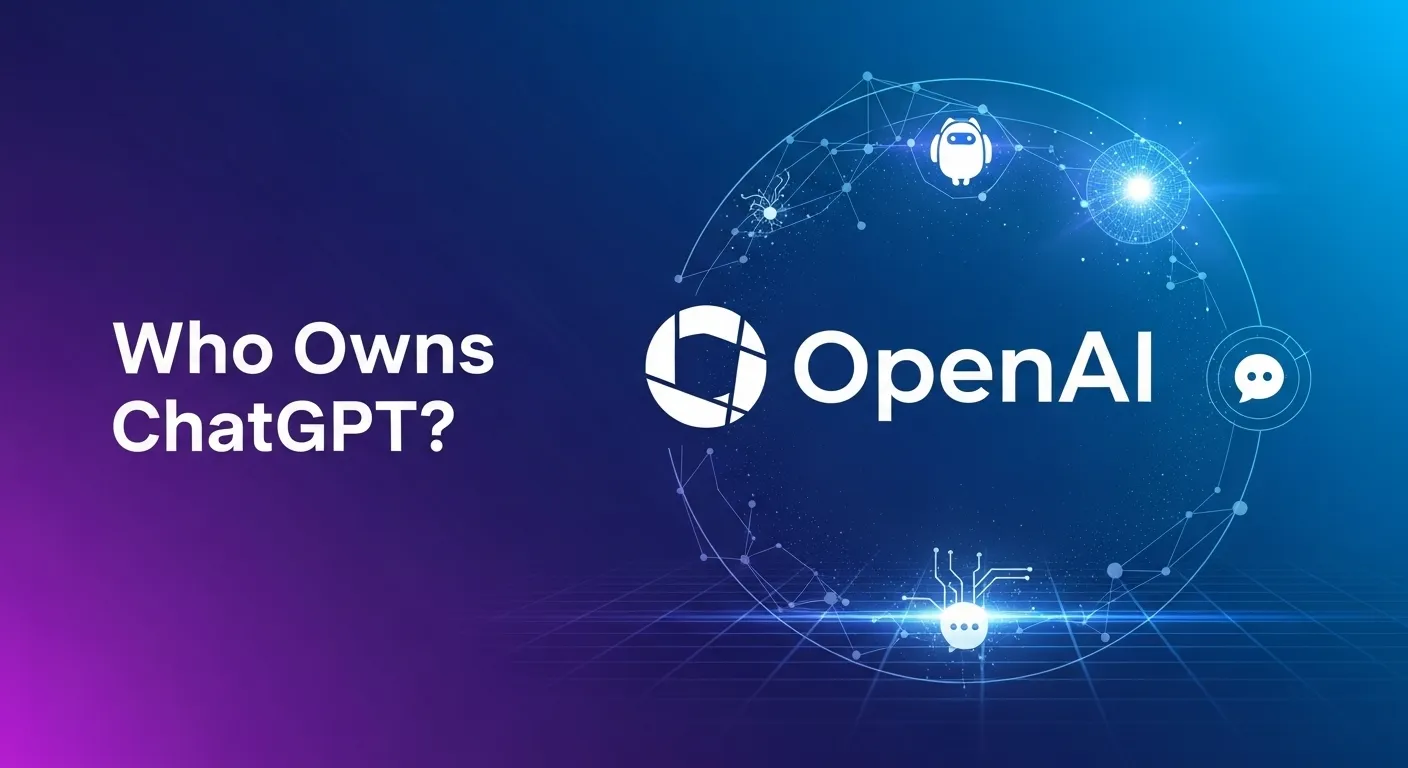ChatGPT, the groundbreaking AI chatbot that has transformed how we interact with technology, is a product of OpenAI, a leading artificial intelligence research company. But who exactly owns ChatGPT, and what is the story behind its creation and ownership? This article dives into the details, covering OpenAI’s history, key figures, investments, current ownership structure, legal implications, and what the future holds.
What is OpenAI?
OpenAI is an AI research and deployment company founded in December 2015 by a group of tech visionaries, including Sam Altman, Elon Musk, Greg Brockman, Ilya Sutskever, John Schulman, and Wojciech Zaremba. Its mission is to ensure that artificial general intelligence (AGI)—AI systems capable of performing any intellectual task a human can—benefits all of humanity.
Initially a non-profit, OpenAI transitioned to a “capped-profit” model in 2019. This change allowed the company to attract significant funding while keeping its focus on safe and beneficial AI development. The capped-profit structure limits how much profit investors can earn, prioritizing research over financial gain.
Key Figures Behind OpenAI
Several individuals have shaped OpenAI’s journey:
- Sam Altman: As CEO, Altman drives OpenAI’s vision and growth. Previously involved with Y Combinator, he is a key figure in the tech industry.
- Elon Musk: A co-founder, Musk left OpenAI’s board in 2018 due to conflicts with his ventures like Tesla and SpaceX. He remains influential in AI discussions.
- Greg Brockman: President and co-founder, Brockman leads OpenAI’s technical and strategic efforts.
- Ilya Sutskever: Chief Scientist, Sutskever is a deep learning expert who contributed significantly to ChatGPT’s development.
Investments and Partnerships
OpenAI’s growth has been fueled by substantial investments, with Microsoft as the primary backer. Microsoft has invested $13 billion, providing both funds and computing resources via its Azure platform. This partnership has been vital for scaling OpenAI’s operations and developing models like ChatGPT.
Other investors include Khosla Ventures, Reid Hoffman, and Thrive Capital, which led a $6.6 billion funding round in September 2024. Nvidia also invested $100 million, reflecting the interconnected success of AI software and hardware. These investments have pushed OpenAI’s valuation to an estimated $100 billion.
| Investor | Investment Amount | Role in OpenAI |
|---|---|---|
| Microsoft | $13 billion | Major investor, provides Azure resources |
| Khosla Ventures | Not disclosed | Early-stage investor |
| Reid Hoffman | Not disclosed | Prominent tech investor |
| Thrive Capital | $1.3 billion | Led 2024 funding round |
| Nvidia | $100 million | Supports AI hardware development |
Current Ownership Structure
As of August 2025, OpenAI operates under a hybrid structure. The non-profit OpenAI Inc. oversees for-profit subsidiaries like OpenAI Holdings, LLC, and OpenAI Global, LLC. Microsoft holds a 49% stake in OpenAI Global, LLC, with profits capped at approximately 10 times its investment. The non-profit board retains ultimate governance, ensuring alignment with OpenAI’s mission.
In February 2025, Elon Musk led a consortium offering $97.4 billion to buy OpenAI’s non-profit arm, aiming to revert it to its original mission. OpenAI’s board rejected the bid, with CEO Sam Altman stating the company is not for sale. This event underscores ongoing tensions between Musk and Altman over OpenAI’s direction.
Legal and Ethical Implications
OpenAI faces legal challenges, particularly around copyright infringement. Lawsuits claim the company used copyrighted works without permission to train ChatGPT, raising questions about data ethics. These cases could impact how AI models are developed and who controls their outputs.
Regarding content generated by ChatGPT, OpenAI’s terms state that users own their creations. However, the legal landscape for AI-generated content is still developing, and clear precedents are lacking. Academic institutions often prohibit submitting AI-generated work as original, and AI detection tools are increasingly used to enforce this.
| Legal Issue | Description |
|---|---|
| Copyright Infringement | Lawsuits allege OpenAI used copyrighted material to train ChatGPT. |
| AI-Generated Content | Users own content created with ChatGPT, but legal clarity is still evolving. |
Future of ChatGPT and OpenAI
The rejected Musk bid highlights the high stakes in AI ownership. As OpenAI develops more advanced models, like GPT-4o and potential future iterations, its ownership structure and mission will face increased scrutiny. The company’s focus on ethical AI development will be tested as it navigates legal, financial, and competitive challenges.
OpenAI’s ongoing projects, like the Stargate initiative with Microsoft and Nvidia, aim to build massive AI data centers, signaling ambitious plans for the future. How these developments shape ChatGPT’s role in the AI landscape remains to be seen.

People Also Ask
- Who created ChatGPT?
ChatGPT was developed by OpenAI, with key contributions from researchers like Ilya Sutskever. - Is ChatGPT owned by Microsoft?
Microsoft is a major investor but does not own ChatGPT; OpenAI retains ownership. - Can I invest in ChatGPT?
OpenAI is not publicly traded, but investing in Microsoft offers indirect exposure. - What is Elon Musk’s current role with OpenAI?
Musk left OpenAI in 2018 but recently attempted to buy it, a bid that was rejected. - How does OpenAI make money?
OpenAI earns revenue through ChatGPT Plus, Enterprise subscriptions, and API access for developers.
Conclusion
ChatGPT is owned by OpenAI, a company balancing profit and purpose in its mission to advance AI for humanity’s benefit. With significant investments from Microsoft and a complex ownership structure, OpenAI navigates a dynamic landscape. Recent events, like Elon Musk’s rejected $97.4 billion bid, highlight the intense interest in controlling AI’s future. As legal and ethical questions evolve, understanding ChatGPT’s ownership provides insight into the broader AI industry.
For more on how ChatGPT compares to other AI tools, check out our ChatGPT vs. Traditional Search Engines post. Curious about using ChatGPT for research? Read our guide on How to Use ChatGPT for Research Purposes.
